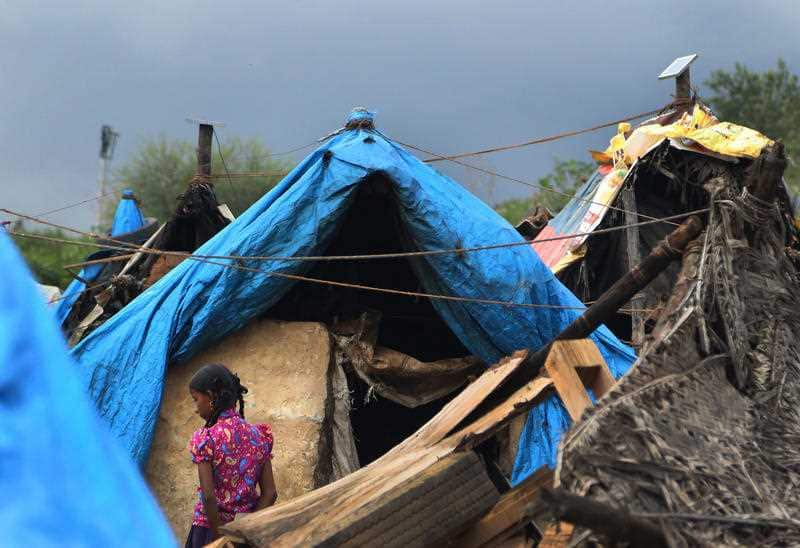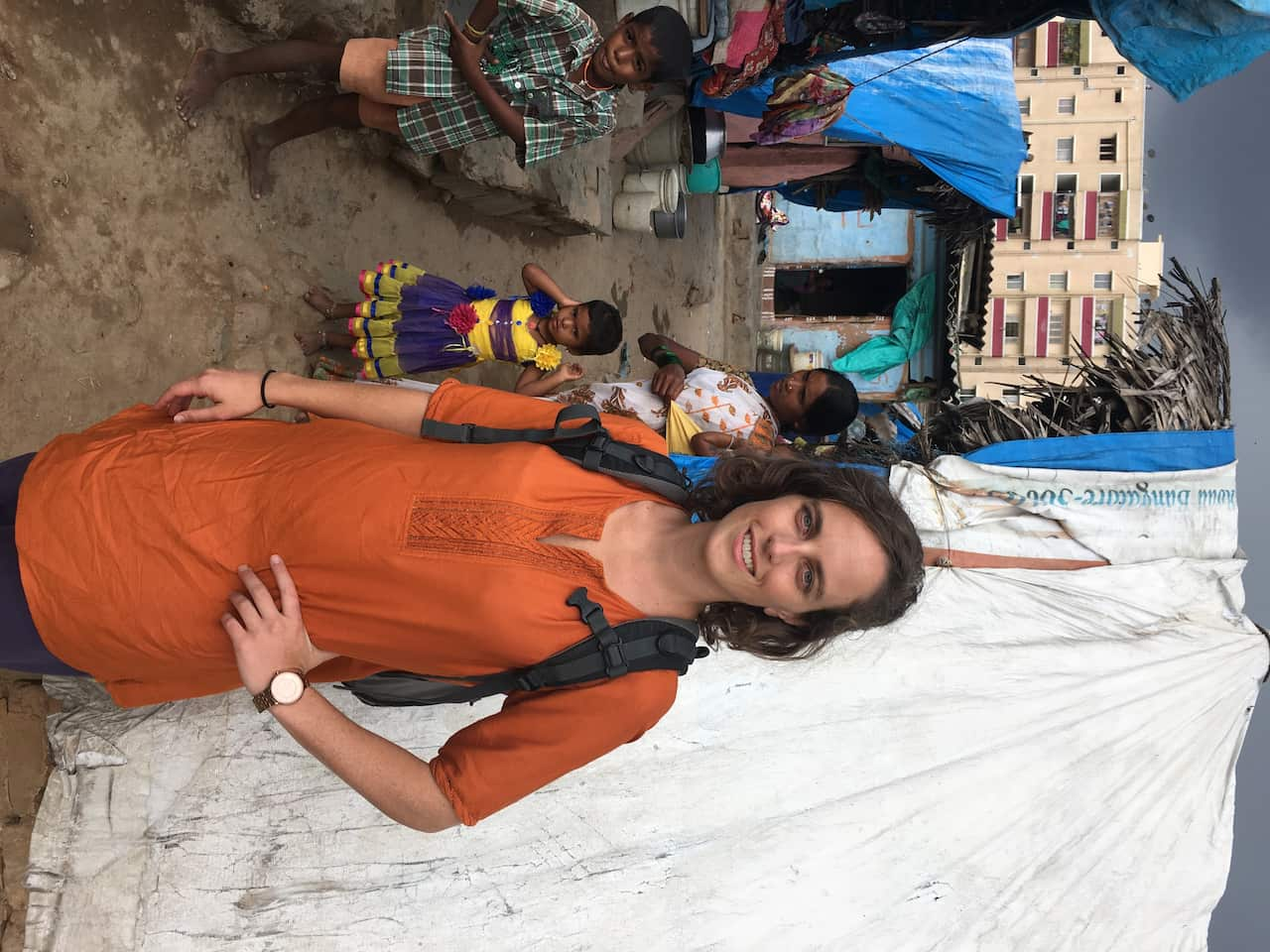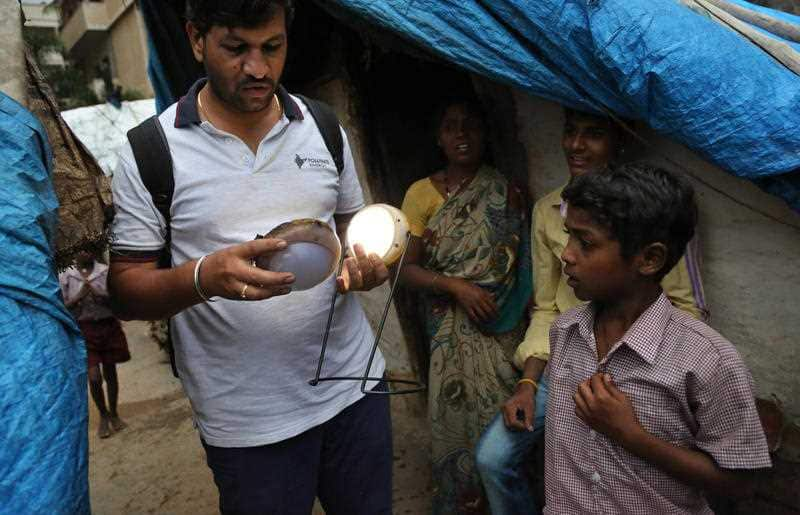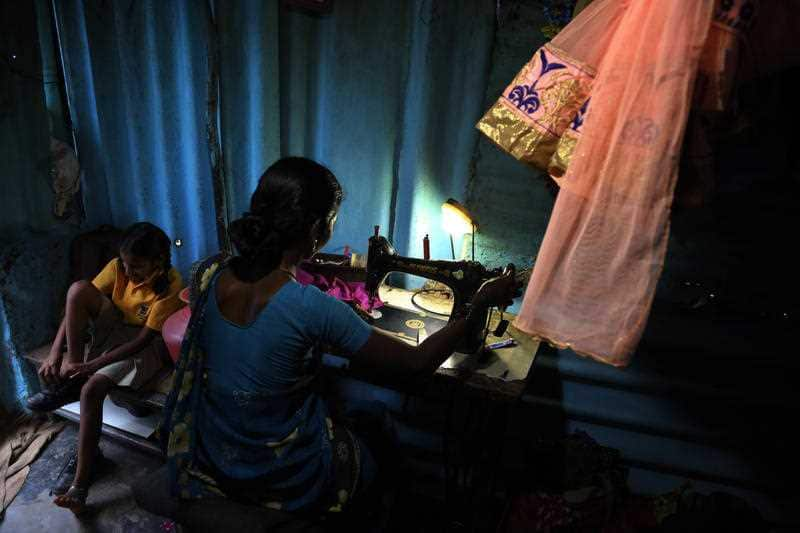On the edge of Bengaluru, wedged between a railway line and a few dilapidated apartment blocks, squats an Indian slum.
From a distance, it looks like any other impoverished settlement – a cluster of ramshackle tents, hordes of snotty-nosed kids and piles of rubbish crawling with flies
But wander through the labyrinthine alleyways and you notice something a little incongruous. Here, 90 per cent of homes have small solar panels perched on their roofs that power the light inside
The 1,000 residents have ditched kerosene for clean energy, which has not only improved their health, it’s provided a better quality light
They’re also saving themselves $100 dollars a year because they don’t have to buy kerosene
“We’re very happy to have the solar lights now because we can work inside the house and the children can study inside,” says Laxshmi, a resident of the slum.

The slum dwellers bought their lights from Pollinate Energy, an organisation that works with India’s poorest people in Bengaluru, Kolkata and Lucknow
Six young Australians founded Pollinate four years ago, including 28-year-old Alexie Sellar, a mechanical engineer from Sydney and the organisation’s chief operating officer
“I’m kind of amazed that we’ve reached 60,000 people already,” she says
“That’s 60,000 people who have clean energy in their homes, something they would not have been able to access maybe for another decade at least.

Pollinate Energy is what’s known as a social business – it aims to find a business solution to a social problem
The Pollinate team drew much of its inspiration from the work of Bangladeshi social entrepreneur Muhummad Yunus who won the Nobel Peace Prize in 2006 for his work with some of the world’s poorest people.
“He’s been a huge advocate of creating business solutions that allow people in poverty to engage with the market and find the best solution for them to lift themselves out of poverty,” says Ms Seller.

The Pollinate team identifies Indian employees with an entrepreneurial spirit. These salespeople, known as Pollinators, work in the slums selling products on commission.
Manjunath is one of Pollinate’s best salesmen. “I’m very happy to do this job because we are working with very poor people. They are uneducated and don’t know how to live in the city.”
Manjunath has worked with Pollinate Energy for three years. For the first couple of years he just sold solar lights, but this year the organisation has begun selling other products, including water filters and mobile phones.
“We’re very happy to have the solar lights now because we can work inside the house and the children can study inside.”
Pollinate Energy’s customers go onto payment plans and have five-weeks to repay their product. Incredibly, the default rate is a tiny 1 per cent.
“We had seen microfinance operating around the world for many years before we started Pollinate,” says Ms Seller. “The entire ethos of microfinance is that people who don’t have much money can still take on a loan and pay it back, and often they make better financial decisions than someone who has a lot of wealth.”
Pollinate Energy has ambitious plans to scale its business across India and wants to be operating in 20 cities by 2020.
“We’re seeing this work very, very well in the cities we’re in at the moment and so many more people are going to migrate into the cities in future that we have the opportunity to serve,” says Ms Seller.
The immense scale of energy poverty in India offers them a vast market for growth. The International Energy Agency says 240 million people, 20 per cent of the population, don’t have access to electricity.
“What overwhelms me, as an Australian, is thinking that’s 20 times the size of Australia who still don’t have access to electricity,” says Ms Seller.
“But the other side of me sees that as a huge opportunity – that’s why we’re so focused on scaling this to so many cities across India, we know these people are there, we know we just have to find them and serve them.”
Ms Seller says if Pollinate Energy wins The Venture it will be able to move into another 5 cities. The winner will be announced in New York in July.
Of the $US1 million in prize money, $250,000 is decided by a public vote. There are 27 finalists in The Venture, a global competition that rewards businesses creating positive change. To support the Australian team you can visit www.pollinateenergy.org

